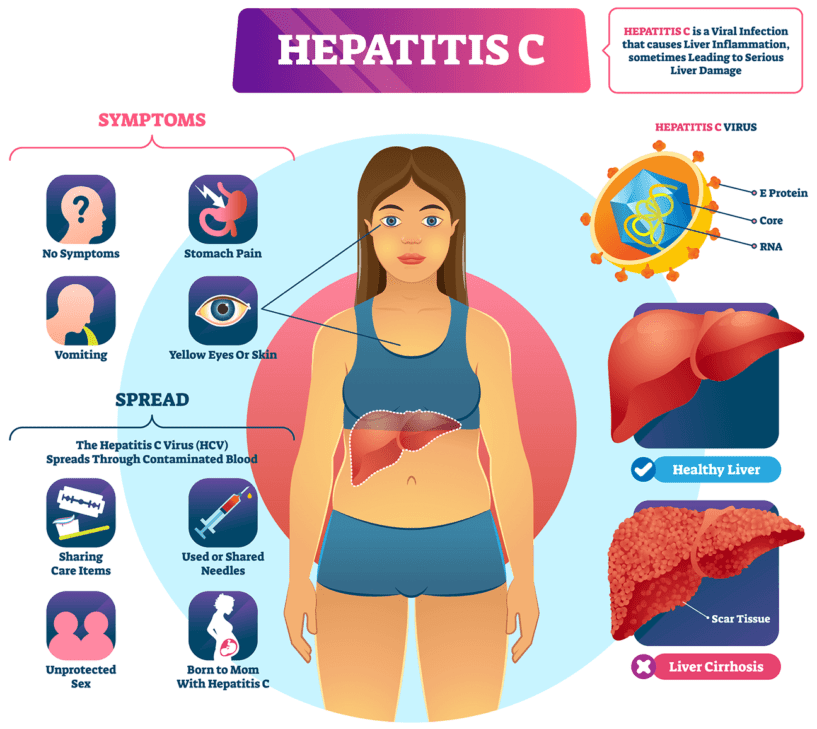Most hepatitis C can be cured with simple treatment
Published October 1, 2021By Chris Jennings
A 2020 report by the Centers for Disease Control showed that hepatitis C (HCV) was the most common bloodborne infection in the United States. According to the World Health Organization (WHO), only 20% of those infected with HCV know they are infected. The Choctaw Nation is working to improve both of those statistics.
HCV is a contagious viral infection that causes liver inflammation. Your liver is responsible for processing nutrients, filtering blood and fighting infections. Inflammation reduces the ability of the liver to do its job, leading to liver disease, cancer and even death.
According to Indian Health Services, in 2015, the infection rates of acute HCV American Indians and Alaska Natives were double that for non-Hispanic whites. The numbers don’t get better across other ethnic groups. It’s six times that of Hispanics and non-Hispanic Blacks and eighteen times that of Asians and Pacific Islanders.
Because many people associate HVC with drug use and sharing needles, they think they don’t need to be tested. While that may be the most common method of transmission, it’s not the only way, says Candace Rose, a Clinical Pharmacist for the Choctaw Nation, “For those born from 1945 to 1965, blood transfusions were the source of most cases of HCV.” Widespread screening of the nationwide blood supply beginning in 1992 has stopped that.
Other causes of HCV are:
- Sharing drug-injection equipment. Today, most people become infected with hepatitis C by sharing needles, syringes, or any other equipment used to prepare and inject drugs.
- Birth. Approximately 6% of infants born to infected mothers will get hepatitis C.
- Healthcare exposures. Although uncommon, people can become infected when healthcare professionals do not follow the proper steps needed to prevent the spread of bloodborne infections.
- Sex with an infected person. While uncommon, hepatitis C can spread during sex, though it has been reported more often among men who have sex with men.
- Unregulated tattoos or body piercings. Hepatitis C can spread when getting tattoos or body piercings in unlicensed facilities, informal settings or with non-sterile instruments.
- Sharing personal items. People can get infected by sharing glucose monitors, razors, nail clippers, toothbrushes and other items that may have come into contact with infected blood, even in amounts too small to see.

One of the things that make it hard to find people with HCV so that they can be treated is the potential lack of symptoms. Many people can live for years without knowing they have HCV. When symptoms do occur, it’s often mild fatigue, which can be attributed to many different things unrelated to HCV.
Rose reiterates this saying, “People with chronic hepatitis C can often have no symptoms and don’t feel sick.” When symptoms do occur, they often are fever, dark urine, yellow skin or eyes, stomach pain, light-colored stool, joint pain and nausea.
HCV-infected people have a 75% chance of developing a chronic infection, so early screening is important. “Chronic hepatitis C can result in serious, even life-threatening health problems like cirrhosis and liver cancer,” said Rose.
Rates of new HCV infections have increased by more than 60% from 2015 to 2019. And in 2019, more than 63% of HCV infections occurred among adults 20-39 years of age. With new cases of HCV on the rise among young adults, the CDC recommends that all adults over the age of 18 get tested for HCV.
The good news is HCV is curable. “Getting tested for hepatitis C is important because treatments can cure most people with hepatitis C in 8 to 12 weeks,” said Rose.
Treatment can cure 90% of people with HCV, reducing the chances of severe complications or death.
Testing and treatment for HCV is available at most CNHSA facilities. If you haven’t been tested or think you may have come into contact with the virus, talk to your care provider for testing and treatment if needed.
CDC recommends you get tested for hepatitis C if you:
- Are 18 years of age and older
- Are pregnant (get tested during each pregnancy)
- Currently inject drugs (get tested regularly)
- Have ever injected drugs, even if it was just once or many years ago
- Have HIV
- Have abnormal liver tests or liver disease
- Are on hemodialysis
- Received donated blood or organs before July 1992
- Received clotting factor concentrates before 1987
- Have been exposed to blood from a person who has hepatitis C
- Were born to a mother with hepatitis C